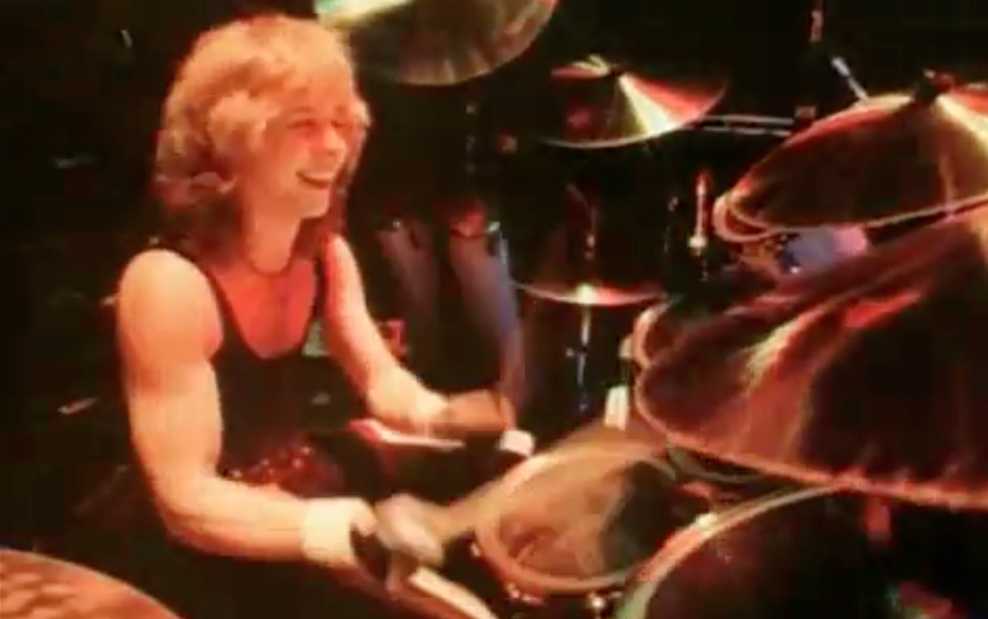Artists
Clive Burr: The Thunder Behind Iron Maiden’s Early Roar

When fans think of the early days of Iron Maiden — the raw power, galloping rhythms, and electrifying live shows — one man’s drumming sits at the heart of it all: Clive Burr. Though his tenure with the band was brief compared to its decades-long career, Burr’s contribution left an indelible mark on heavy metal. His crisp, energetic style not only helped define Maiden’s early sound but also inspired countless drummers who followed.
Childhood and Early Influences
Clive Burr was born on March 8, 1957, in East Ham, London. Growing up in the vibrant musical climate of 1960s and ’70s Britain, Burr was captivated by rock music from an early age. He cited bands like Deep Purple and drummers such as Ian Paice among his earliest influences, drawn to their driving grooves and technical prowess. He also admired Cozy Powell for his sheer power and showmanship. Burr started drumming in his teens, playing in various local bands and honing the energetic style that would later make him famous.
Career Highlights
Before joining Iron Maiden, Burr played in the British band Samson, where he crossed paths with guitarist Paul Samson. But it was in 1979 that Burr’s career took a pivotal turn: he was invited to join Iron Maiden, then a rising force in the New Wave of British Heavy Metal (NWOBHM).
With Burr behind the kit, Iron Maiden recorded their first three landmark albums — Iron Maiden (1980), Killers (1981), and the breakthrough The Number of the Beast (1982). His drumming was essential to the band’s early identity, combining punk-like urgency with hard rock precision. Tracks like “Run to the Hills,” “Phantom of the Opera,” and “Hallowed Be Thy Name” showcased Burr’s dynamic playing and tight, galloping rhythms.
After parting ways with Maiden in 1982, largely due to personal and touring pressures, Burr played with a variety of acts, including Trust, Desperado (with Dee Snider), and briefly with Praying Mantis. Though he never found a group as globally dominant as Maiden again, his reputation as a powerhouse drummer remained secure.
Drumming Style
Clive Burr’s drumming was all about energy, feel, and instinct. He had a crisp, punchy snare sound and favored fluid, driving hi-hat work that gave Iron Maiden’s early songs their restless, almost punk-like vitality. His use of fast single-stroke rolls, creative cymbal accents, and spirited fills lent Maiden’s music an urgent, youthful quality.
Unlike some drummers who meticulously plan every part, Burr often approached songs with a natural spontaneity. His slightly loose, human touch is part of why those early Maiden albums still feel so alive. Many fans and fellow musicians believe that Burr brought an irreplaceable spark to Iron Maiden’s formative years.
Legacy
Clive Burr passed away on March 12, 2013, after a long battle with multiple sclerosis. His death was mourned throughout the metal world, with Iron Maiden founding members Bruce Dickinson and Steve Harris paying heartfelt tributes to their old friend and bandmate.
Burr’s influence is still widely felt. Many metal drummers cite his work on The Number of the Beast as a major inspiration, praising his ability to combine power with groove. His playing helped set the template for countless bands in heavy metal and beyond.
Iron Maiden themselves honored Burr with charity concerts and by establishing the Clive Burr MS Trust Fund to help him and others struggling with the disease. It was a testament to how deeply loved and respected he was, not just as a musician, but as a person.
Here are a few of the Notable Performances of Clive Burr with The Iron Maiden
Phantom of the Opera Live 1980
Wrathchild Live in Germany 1981
Run to the Hills Live 1982
Hallowed Be Thy Name Live 1982
Clive Burr may have only been with Iron Maiden for a few short years, but his drumming laid down the foundations of their enduring sound. His spirited, inventive style helped shape heavy metal at a pivotal moment, and his legacy continues to resonate through drum kits and loudspeakers worldwide. For fans of metal, his beats will always be more than rhythm — they’re part of the genre’s very heartbeat.
“Clive was a great guy and a man who really lived his life to the full. He was an amazing drummer, and his legacy is the fantastic drumming on the early Maiden albums that we all still treasure to this day.” – Bruce Dickinson

